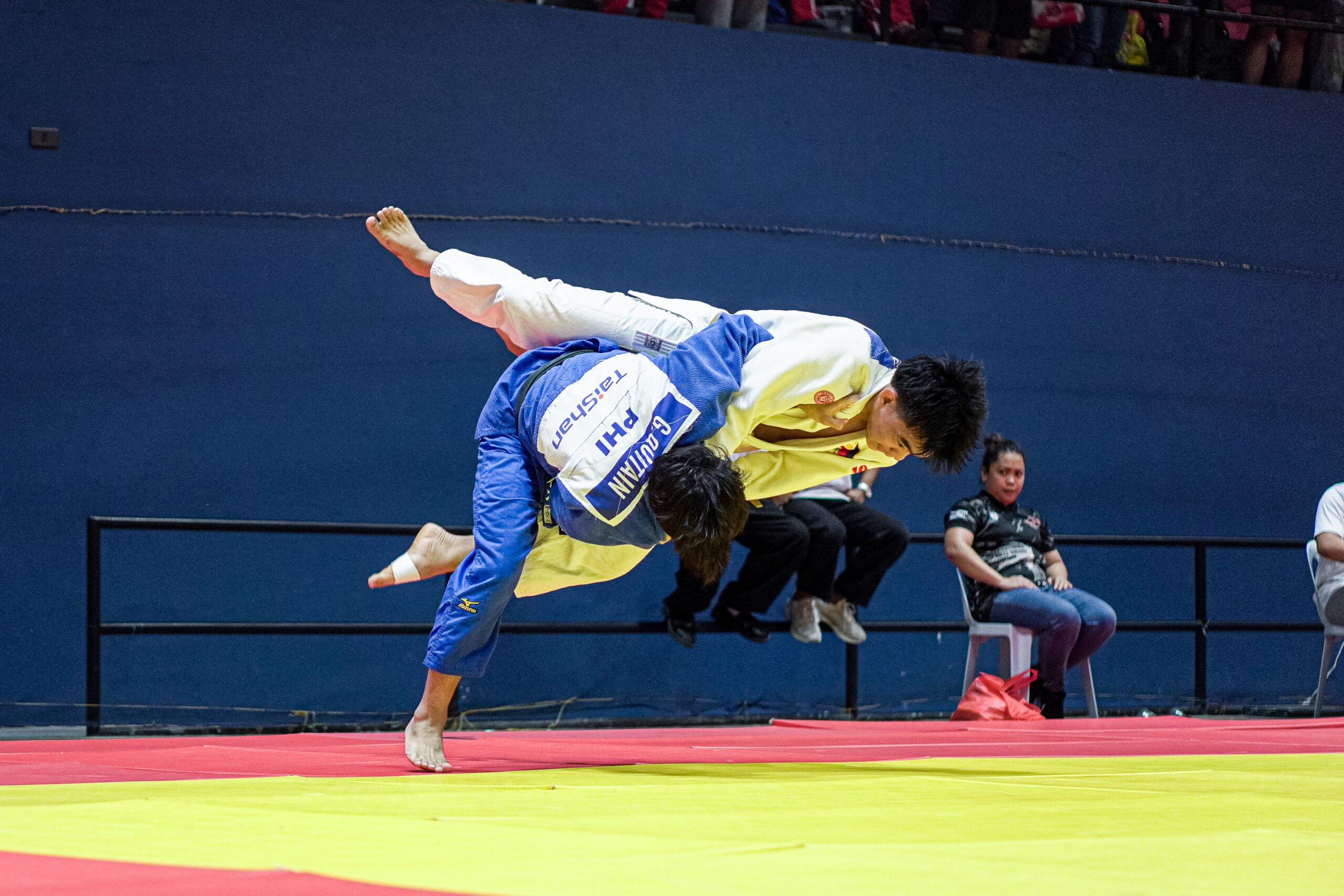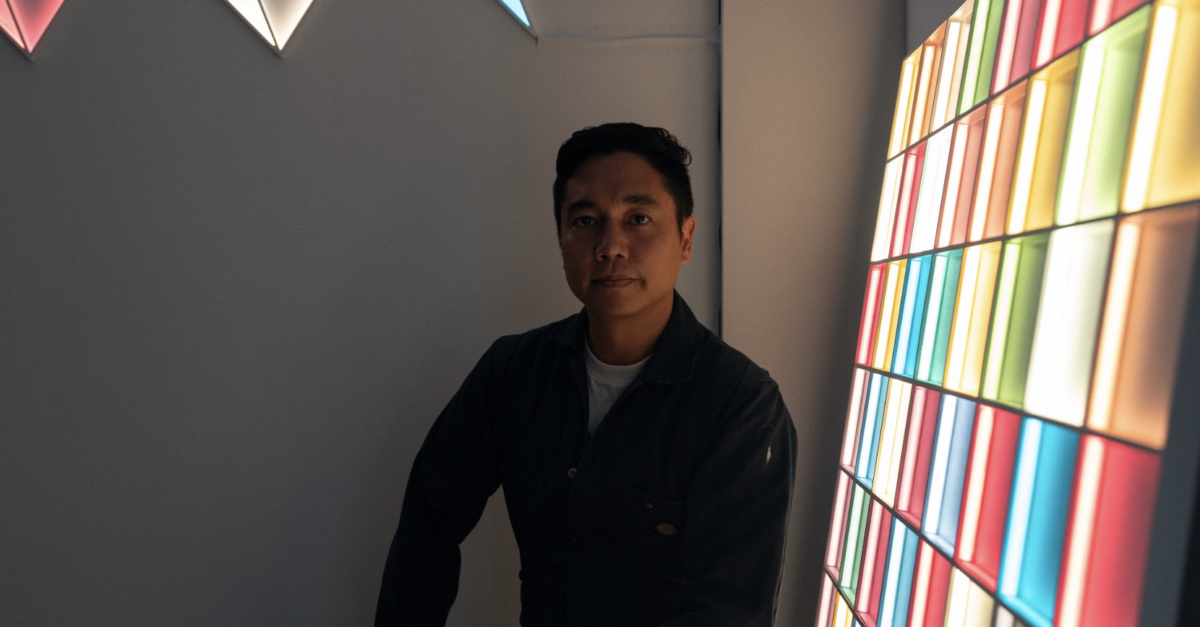
One thing Luis Antonio Gokim Tagle will discover as he moves to Manila is that doors will be opened to him.
Well he did receive, on his first day in office and from no less than the mayors themselves, the symbolic keys to the five cities of Metro Manila that are within his jurisdiction as Archbishop of Manila. And certainly there will be new opportunities and experiences to venture into beyond the threshold of opened doors in what those in the ministry would call the “wider vineyard.”
But the drift of the talk did not exactly veer towards this perspective on the afternoon that we came to Tagle’s erstwhile office in Imus, Cavite. He was then still the Bishop of Imus, a post he had held for 10 years to the day, until he was named Archbishop of Manila, head of the premier ecclesiastical jurisdiction of the Catholic Church in the Philippines, and installed on December 12.
The Imus Bishop was running late for his appointment with us, but with good reason—having to rush off for a sick call or to celebrate a Mass for the dead are often unscheduled obligations, but always good reason for a minister of the Lord. But perhaps keen to make up for lost time, he was out of the car as soon as it slowed down near the door to the Bishop’s Residence. From within we saw him rapping frantically on the door while peering through the glass panels into the hallway, trying to get someone to come and unlock it.
Recognizing him, we vaguely wondered why there was no one to at least anticipate that the master of the house would be coming. As someone at last came to let him in and we teasingly chided the staff in the office about locking the boss out, a priest who also had an appointment with him laughingly remarked, “Nauna na naman kasi, eh (He got there ahead, as usual).”

Tagle, as his staff in Imus and most everyone who has worked with him knows, does not let protocol and procedure get in the way of his actions. And his actions, it is easy to see, are casual and straightforward—often with a touch of quirky humor.
“I think that might change,” he chuckled, referring to the locked door incident, when asked about what might be different about Manila—how he would change the Archdiocese or how it might change him. It was meant to be a serious question, but he had seemingly turned it around and answered in a light-hearted vein.
“In Manila, you notice, there is a guard at the gate to the compound, and a guard at the entrance to the building. They open doors for you—well, that might take some getting used to,” he grinned, and added, “In Manila, there are always people ahead of you at the door. The Archbishop is not allowed to open doors.”
Later, one wonders if that last answer did not carry some cryptic, if hidden, meaning.

Media savvy
Archbishop Tagle, on top of his many other credentials as a doctor of Sacred Theology and member or consultant of a number of Vatican offices, is a great communicator, equally at home in the traditional media of print and broadcast, and just as adept and savvy with the new media of the Internet.
Long before he was ordained Bishop 10 years ago, he was already a much sought after speaker and a published writer. These days he hosts a weekly tele-evangelizing program, has a YouTube channel and maintains his own Facebook account. He tweets, sends out text messages, and so far, is not leery about giving out his mobile phone number.
He “love(s) to talk,” he admits, but he backtracks and adds, “I’m actually a very shy person.”
“Soft-spoken” though, is how the older folks in Imus describe the man who was their Bishop for 10 years, the same boy who grew up close to the church—literally. His parents, Manuel Tagle Sr. and Milagros Gokim Tagle, raised their boys, Luis Antonio and Manuel Jr., in a home just across the Imus Cathedral.

Luis Antonio, whom everyone called “Chito,” was born on June 21, 1957. The boy who grew up next door to a cathedral was an active member of the Columban Squires, whose adviser/mentor was the parish priest. But he was not really the kid who would be a priest. “I was being prepared to be a doctor,” Tagle recalled, because people said he has the brains and the perseverance for medical studies.
But he got a new perspective on life in junior high school when their parish priest got assigned to Ternate, Cavite. Along with the rest of the Squires, he accompanied the priest to Ternate and was shocked to see how different this new assignment was. From a comfortable cathedral in the town center, the priest was being moved to a poor parish with a rundown church and an old rectory.
“I saw the poverty of the place, and I remember thinking, ‘Why would you want this? What would you get out of it?’ I wondered how this young priest could, in a way, ‘waste his life’ serving God in this poor place.” What he did not realize until much later, was that this incident would become a turning point in his life. “That was a religious experience for me, even if I did not know it then. It had such a great impact on me.”

He looks to this day as the inspiration that eventually led him to the Jesuit-run San Jose Seminary, where he completed his Philosophy and Theology studies. Appointed to teach at the diocesan seminary, Tahanan ng Mabuting Pastol for three years after his ordination on February 27, 1982, he was later sent to the Catholic University of America to obtain his Licentiate and Doctorate degrees in Sacred Theology.
A passion for teaching
School work was never hard work for Tagle, because he genuinely enjoyed reading and studying. And later, back home after seven straight years in the US with no home leaves, he returned to be rector of the Seminary where he resumed teaching, which he also passionately loves.
Probably because he sees himself in the young seminarians. “I’ve always been a quiet student; I’ve never been the active type. Even my teachers from grade school and high school will tell you, ‘Ah si Chito, tahimik lang yan.’”
Stories about his quiet days in school frequently draw a laugh among those who see only the priest-communicator today, until they realize that while indeed there is much that Tagle talks about, it is very rarely about himself. He is deft with words when guiding his listeners, whether they be individual parishioners or fellow clergy, and readily dispenses advice and solutions to simple problems with profound insight. But ask him about himself and his achievements and he falters and skids.
What obviously animates him once he gets started with an audience is his message and staying focused on it. “I do have to remind myself of that, to get over the stage fright every time I have to give a talk,” said the prelate. But stage fright is a weakness not readily apparent in Tagle who has stood at the podium of many local and international conferences, giving talks to a vast range of audiences—from the Synod of Bishops from all over the world at the Vatican, to active youths assembled for an evening’s recollection, or an afternoon gathering of septua- and octogenarian members of a church organization.
“If we have a day-long assembly and Bishop Chito is one of our speakers, we give the after lunch slot to him because we know his talk will not put our audience, especially the older ones, to sleep,” a veteran religious retreat organizer had earlier shared. “He knows how to make them laugh and they love him.”
Told of this observation, the prelate acknowledged that he was frequently given the “siesta” slot, but that he didn’t mind. “Yes, they stay awake because it looks like I’m having a great time—and I do enjoy it. But what you don’t see is that before that, I have to deal with stage fright. And I deal with it by trying to psyche myself that it’s not about me—it’s about the message that I have to proclaim, that comes with my mission. That keeps me grounded.”
Recognizing the gift
Many describe Archbishop Chito as a brilliant scholar and excellent speaker, but a simple and humble priest.
The man who once dreamt of being the pastor of a poor but active parish in Cavite had, along the way, discovered and learned to love the life of teaching in a seminary. He succeeded Gaudencio Cardinal B. Rosales as Archbishop of Manila, a position held for about two decades by the late Jaime L. Cardinal Sin.
“I am a trained teacher—so I talk a lot and read a lot,” the newly-installed Archbishop declared. “But I read not just test papers but also minds, because that’s one thing you acquire as a teacher. And because a teacher’s main focus is transformation—of the mind and of the heart—as a teacher my end goal is always transformation and conversion.”
The manner and approach, he added, is only secondary to that goal. “Will I be concerned about what is happening, from the point of view of what the Church demands of us, which is the constant call to conversion? Definitely. I mean, with all the issues that we are faced with, there is a clear call to conversion, to transformation.”
There will be a lot of continuity in what has been started, because “no matter who the archbishop is, it is the same gospel truth that we will proclaim,” he said. “But we are different individuals and so no matter what we do, we carry who we are. I have to be at home with who I am. I have to see, in the way others do, what are my capacities, my limitations, my gifts. And so I will have to challenge myself in terms of maximizing the gifts that are mine, and learning also from others, especially my predecessors.”
Will his new post change Manila, or will he be changed by this ever-loyal and distinguished city?
“It is a mission that will require simplicity and truth,” said His Eminence. “It will require a lot of purification on my part, so it will also require a lot of admission of my weaknesses, of my simpleness, so that God can work better through me. If there is a change that will happen, hopefully it is a change that I become more simple, more truthful, more human, more reachable. That I could cry with people, that I could laugh with people.”
Though he said he never ever aspired for the position, the issues peculiarly addressed to the Archbishop of Manila as lead shepherd of the flock, do not faze him. He expects, and in fact is looking forward to, more discussions on the RH Bill.
Continuing the discussion
“I was part of the dialogue panel of the Catholic Bishops’ Conference of the Philippines so from Day 1, I was already there,” he recalled. “I would like to pick up from that experience because the dialogue was meant, first of all, to share with the government offices that have a stake on this bill, the concerns of the Church—not just the criticism. The Church is also concerned about poverty, about children dying and women battered by their husbands. We are concerned about abortion. We are concerned about services not being offered to the poor, and about the environment. If government people say they see poverty—church people see it daily too. The church sees and knows these concerns, and we want to communicate to people, especially those who are behind the bill, that we are equally concerned about these issues. Do not think of the church as uncaring about poverty and the increasing number of children. That is not fair. And I think part of my approach is to present a face of the church that is also concerned about these issues.”
It is unfortunate, he explained, that “the whole issue has been caricaturized and oversimplified to the point of it being just a choice—are you for or against the bill. Sometimes, sadly, the whole issue is not handled intelligently.
“Personally, I wish, if there is a discussion or even debate, we can have our people be made more intelligent. And part of intelligence is not just political, economic, sociological data—but we can include also the faith data, because faith is reasonable. So since I was already involved in the initial dialogue phase, I would love to continue it, to clear the air about what the Church is concerned with and stands for.
“Of course we know that there are different thoughts, such as statistical knowledge, that will operate according to its own rules, but we should also consider that statistical knowledge is not the only form of knowledge. So I would love to dialogue with experts, and in the spirit of the common good, I would propose that we also look at the reasonability of the faith.”
At the seat of the Manila Archdiocese, from where he now casts a look at Malacañang, the newly-installed Archbishop shared his thoughts on President Aquino.
Need for cleansing
“I can only empathize with any person in that position. It’s not easy to run a country. First, with the type and culture of politics that we have, we can only agree with the President that there is a need for cleansing, for purification—if the goal is transformation and conversion.
“And reflection with prayer is an indispensable tool if someone wants to cleanse or to clean up a whole system. Human efforts and knowledge—I’m talking now as a priest—they are needed, they are valuable, but may hangganan talaga (there are limits). There is a wisdom that comes from your encounter with the living word, and your own encounter with God.
“It will not make you less of a politician. The faith and the word of God can even open up avenues that pure politics, purely political moves, may not be able to see. It can lead to reason, avenues and insights that other disciplines may not be able to see. And he will be greatly blessed if he could add that dimension more deliberately as an individual.”
Luis Antonio G. Tagle has apparently put a lot of serious thought on crucial issues that beset the country, and which will now be part of his world as Archbishop of Manila. Ever the teacher, he spoke slowly, weighing his words and lapsing into Filipino at times if he thought it would help the listener follow his thought.
Given his relative youth—he’s only 54—and countless doors yet to open to him, does he ever think about speculations that he could one day be considered for the Papacy?
The spell is broken. A smile lights up his eyes and travels down as laughter on his lips. He acts for all the world like he gets the joke.















































